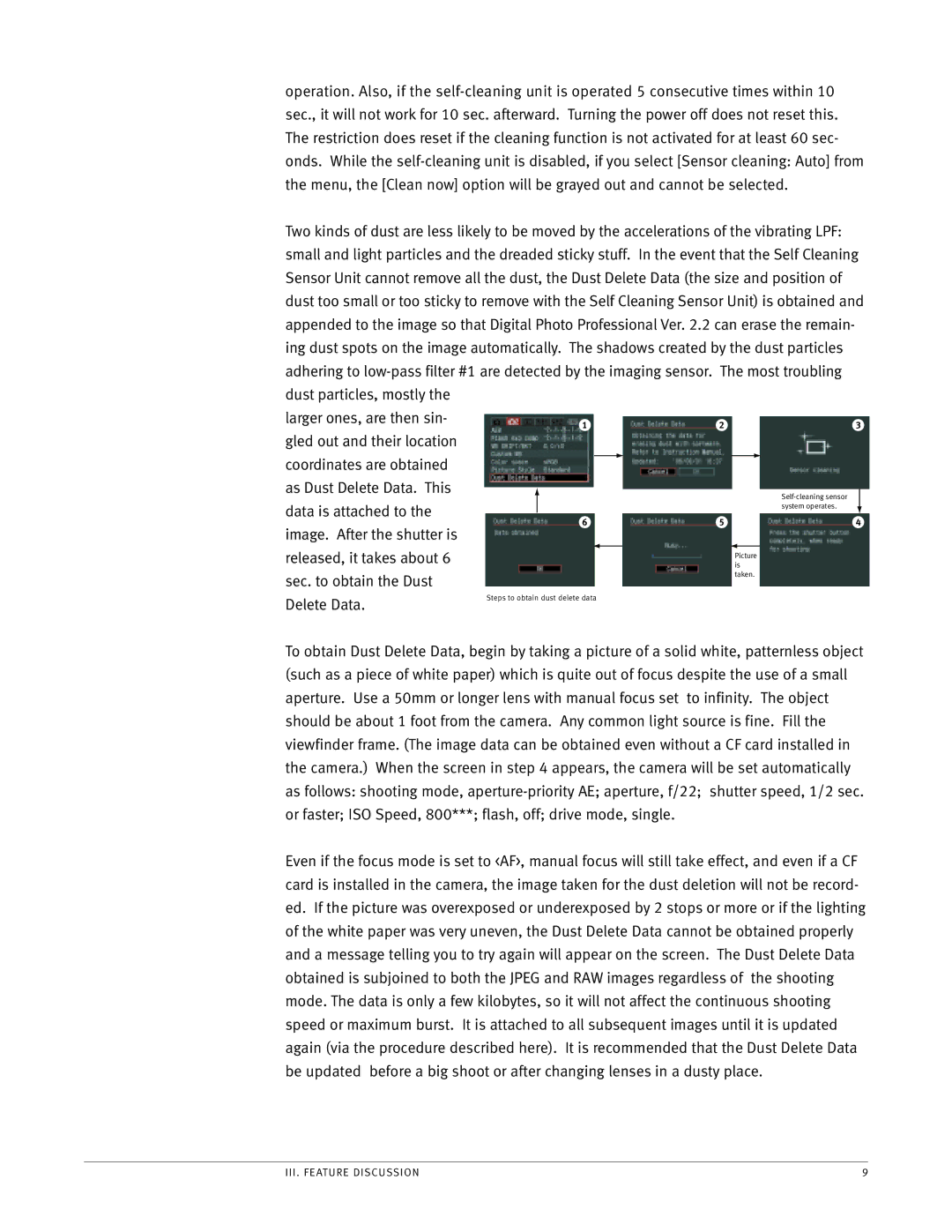
operation. Also, if the
Two kinds of dust are less likely to be moved by the accelerations of the vibrating LPF:
small and light particles and the dreaded sticky stuff. In the event that the Self Cleaning Sensor Unit cannot remove all the dust, the Dust Delete Data (the size and position of
dust too small or too sticky to remove with the Self Cleaning Sensor Unit) is obtained and | |||||||
appended to the image so that Digital Photo Professional Ver. 2.2 can erase the remain- |
|
| |||||
ing dust spots on the image automatically. The shadows created by the dust particles |
|
| |||||
adhering to |
|
| |||||
dust particles, mostly the |
|
|
|
|
|
|
|
larger ones, are then sin- | 1 | 2 |
|
| 3 | ||
|
|
| |||||
gled out and their location |
|
|
|
|
|
|
|
coordinates are obtained |
|
|
|
|
|
|
|
|
|
|
|
|
|
| |
as Dust Delete Data. This |
|
|
|
|
|
| |
|
|
|
|
|
| ||
|
|
|
|
|
|
| |
data is attached to the |
|
|
|
| system operates. |
|
|
|
|
|
|
|
| ||
6 | 5 |
|
| 4 | |||
|
|
| |||||
image. After the shutter is released, it takes about 6 sec. to obtain the Dust Delete Data.
To obtain Dust Delete Data, begin by taking a picture of a solid white, patternless object (such as a piece of white paper) which is quite out of focus despite the use of a small aperture. Use a 50mm or longer lens with manual focus set to infinity. The object should be about 1 foot from the camera. Any common light source is fine. Fill the viewfinder frame. (The image data can be obtained even without a CF card installed in the camera.) When the screen in step 4 appears, the camera will be set automatically as follows: shooting mode,
Even if the focus mode is set to <AF>, manual focus will still take effect, and even if a CF card is installed in the camera, the image taken for the dust deletion will not be record- ed. If the picture was overexposed or underexposed by 2 stops or more or if the lighting of the white paper was very uneven, the Dust Delete Data cannot be obtained properly and a message telling you to try again will appear on the screen. The Dust Delete Data obtained is subjoined to both the JPEG and RAW images regardless of the shooting mode. The data is only a few kilobytes, so it will not affect the continuous shooting speed or maximum burst. It is attached to all subsequent images until it is updated again (via the procedure described here). It is recommended that the Dust Delete Data be updated before a big shoot or after changing lenses in a dusty place.
III. FEATURE DISCUSSION | 9 |
